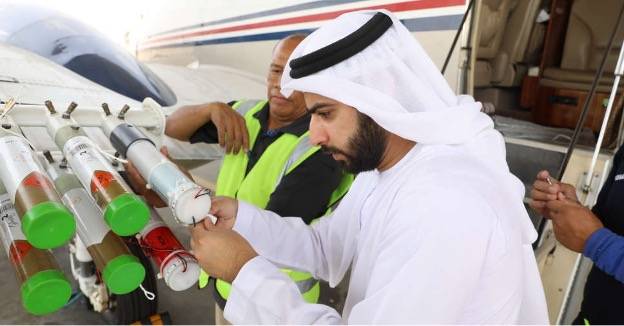Dubai is Moving Forward with New and Advanced Cloud-Seeding Mechanisms
Dubai's cloud seeding process

Dubai has addressed the water scarcity issue that has rendered much of its land barren by implementing advanced mechanisms, such as cloud seeding, that would enable rainfall throughout the year. Around 300 cloud-seeding missions are planned in 2024 across the United Arab Emirates to receive rainfall.
The UAE Research Program for Rain Enhancement Science, run by the National Center of Meteorology (UAEREP-NCM), is responsible for the country's cloud-seeding program. The program has been operating for more than 23 years and aims to increase precipitation in one of the hottest and driest areas of the world.
Due to climate change's impacts and a growing population, the UAE is facing increasing pressure on its water resources. This demand has forced the country to look beyond its traditional reliance on seawater desalination plants and explore other methods to secure its water supply.
According to NCM officials, "The UAE carries out nearly 300 cloud-seeding missions yearly, and the frequency can vary based on weather patterns, cloud availability, and climatic conditions. The NCM analyzes these variables to decide when and how often cloud-seeding operations should occur throughout the year. The goal is to optimize the effectiveness of rain enhancement strategies to benefit water security in the UAE and other arid and semi-arid regions."
Experiments and statistical analysis have consistently shown that cloud seeding can significantly enhance precipitation by up to 15% in a turbid atmosphere."
At the same time, the platform quotes the NCM official: "Moreover, when implemented in a clean atmosphere, the enhancement ratio could reach up to 25 per cent. These figures underscore the effectiveness of cloud seeding to positively impact annual rainfall."
Cloud-seeding missions are increasingly critical as we strive to limit global temperatures to 1.5°C above pre-industrial levels. This is highlighted by the recent staging of COP28 in Dubai, where experts identified this threshold as the point beyond which we can expect more severe consequences of climate change. As a result, the UAE is making significant efforts to conserve its water reserves.

